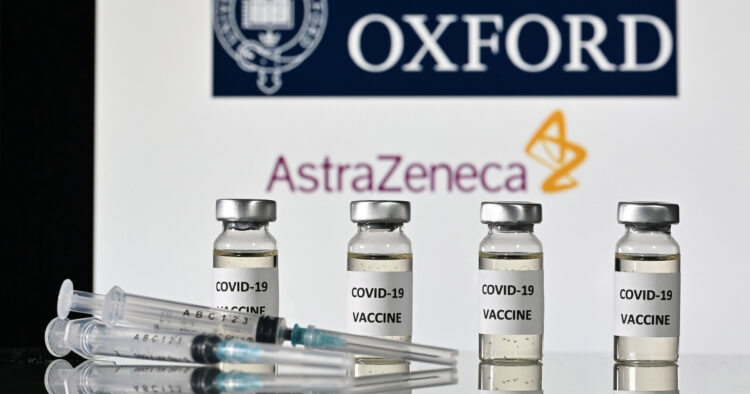By Charlotte Webster-
The U.K. has recorded 30 cases of rare blood clotting events after the use of the AstraZeneca Covid-19 vaccine, the country’s drug regulator announced on Thursday evening, while insisting that the benefits of the vaccine still outweigh any possible risks.
The Medicines and Healthcare products Regulatory Agency (MHRA) said the 30 reports of the clots are rare, after the administration of 18.1 million doses of the vaccine — a rate of around one case for every 600,000 jab
In its weekly summary, U.K.’s Medicines and Healthcare products Regulatory Agency (MHRA) noted, the health regulator said it had received 22 reports of rare brain blood clots and 8 reports of other blood clotting events out of a total of 18.1 million doses of the AstraZeneca vaccine administered as of March 24.
The agency also said it had not received any reports of clotting events following the use of the Pfizer-BioNTech vaccine which has also been rolled out on a large scale in the country.
The regulator concluded that the overall safety of both vaccines have so far been as expected and the benefits of both vaccines in preventing Covid-19 “far outweigh any known side effects.”
The number of vaccines administered by the UK so far, has led to about 60% of its adult population receiving at least one dose The government have recommended at least two doses of the vaccine for the British public.
The rarity of clotting incidents is not likely to remove concerns about the growing links between the AstraZeneca shot and the rare type of blood clotting event.
Reports of similar events have led to France, Germany, Canada, Sweden and Finland recommending that younger people (mostly below the age of 60) avoid the shot as they are much more likely to be affected by the condition. In Norway and Denmark, the AstraZeneca shot remains suspended.
Last month, an extensive review by the European Medicines Agency (EMA) concluded the vaccine was safe and effective, ruling out a broad link to blood clotting. But the investigation was not able to conclusively rule out a link between some extremely rare types of clotting.
The main concern of the shot has been rare cases of blood clots forming in the veins which run from the brain, known as cerebral venous sinus thrombosis (CVST), a potentially fatal condition. Aside from this there have also been cases of thrombocytopenia where the platelet count in the patients blood drops, resulting in heavy bleeding.
In search if a medical explanation for the rare occurrences of blood clots, teams in Germany and Norway, say there is a chance that the vaccine may, in very rare circumstances, cause the immune system to attack the body’s blood platelets, potentially leading to thickening and causing clots.
But they added that there is still no conclusive evidence that the vaccine is dangerous, and that the development may also be occurring naturally.
EU and UK health regulators have said the vaccine is safe to use, and neither team’s findings have yet been peer-reviewed.
The teams, from Oslo University Hospital and Greifswald University in Germany, say antibodies created by the body after receiving the vaccine could be mistaking platelets in the blood for an infection, attacking them and causing the body to then create more platelets, causing clots.
Similar effects have been observed in patients receiving other drugs, including heparin, which causes a clotting condition called heparin-induced thrombocytopenia (HIT).
The Greifswald team examined nine cases of clotting post-vaccination, seven of whom were found to have CSVT. Tests showed four had elevated platelet levels in their blood, similar to HIT sufferers.
A sample of 20 vaccinated people who did not develop clots, meanwhile, showed normal levels of platelets.
The team said it would submit its findings to British medical journal The Lancet shortly, and advised anybody who noticed bruising
Norway has reported six cases of the rare clotting issue among 120,000 recipients of the shot, resulting in four deaths. Germany has reported 31 such cases after 2.7 million vaccinations, which has led to nine deaths.




